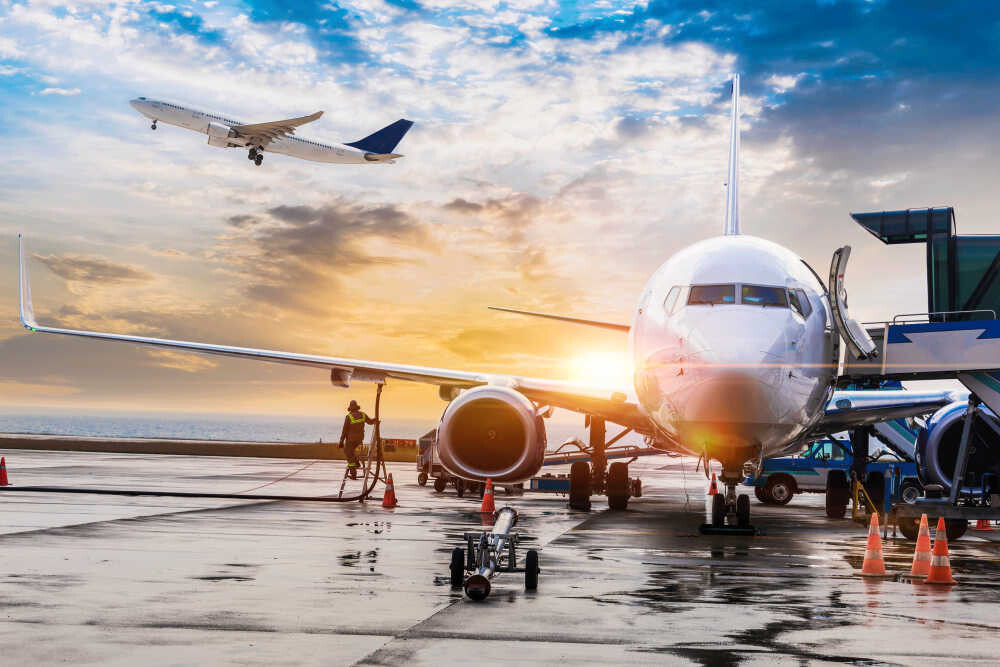
TASHKENT, UZBEKISTAN – The possibility of resuming direct flights between Uzbekistan and Singapore is being actively discussed. Both countries are exploring ways to reopen air links, driven by increasing travel demand and expanding economic exchanges. This is expected to open a new chapter in bilateral relations.
Background to Flight Resumption Discussions: Increasing Exchange Demand
Singapore has strongly recognized the need for direct flights to Uzbekistan due to the steady increase in travelers to the country in recent years. Particularly, as international flights normalize after the pandemic, growing interest in the Central Asian region and an increase in business and tourism travel have accelerated these discussions.
Currently, travelers between Uzbekistan and Singapore mostly face the inconvenience of transiting through a third country. This incurs additional time and cost, hindering the activation of exchanges between the two nations. If direct flights resume, this inconvenience will be resolved, significantly enhancing traveler convenience and revitalizing human and material exchanges between the two countries.
Ripple Effects in Economy and Tourism: Mutual Benefits Expected
The resumption of direct flights is expected to have significant ripple effects on the economies and tourism sectors of both countries.
From an economic perspective, Singapore, as a major financial and trade hub in Southeast Asia, and Uzbekistan, as a key economic nation in Central Asia, can become important partners for each other. Direct flights will facilitate the movement of business people, positively impacting investment attraction and trade volume. Uzbekistan, with its abundant natural resources, young population, and rapidly growing market, is emerging as an attractive investment destination for Singaporean companies. Conversely, Singapore's advanced technology and service industries have the potential to contribute to Uzbekistan's economic development. In logistics and transportation, direct flights can also shorten transit times for fresh produce and high-value items, contributing to the diversification of trade items between the two countries.
The tourism industry is also expected to gain significant vitality. Singapore boasts world-class tourist attractions such as Marina Bay Sands and Gardens by the Bay, attracting many tourists with its clean urban environment and diverse cultural content. Uzbekistan is famous for its ancient cities like Samarkand, Bukhara, and Khiva, which hold the splendid history of the Silk Road. Its exotic cultural heritage and outstanding natural landscapes will offer new experiences to Singaporean travelers. Direct flights will provide an opportunity for people from both countries to more easily access and understand each other's cultures, promoting cultural exchange, which will contribute to deepening friendly relations in the long term.
Concrete Progress in Resumption Discussions: Cooperation Between Airlines and Governments
It is reported that the Singaporean transport authorities and Uzbekistan's civil aviation authorities are currently holding working-level consultations for the resumption of direct flights. Specific discussion points will include: △selection of operating airlines △flight frequency △aircraft types △air traffic rights negotiations.
Singaporean national airlines such as Singapore Airlines and Scoot are thoroughly examining the marketability of the Uzbekistan route, and Uzbekistan Airways is also showing an active stance to attract more tourists and expand its aviation network. Both governments are expected to work towards finding mutually beneficial terms in air traffic rights negotiations. The key will be to derive optimal operating conditions by comprehensively considering past operational experience and current market conditions.
Furthermore, cooperation between the airports of both countries is essential for the resumption of direct flights. Changi International Airport and Tashkent International Airport are expected to review and discuss improvements for overall infrastructure, including passenger and cargo handling capabilities, security systems, and connecting transportation networks. This will be a fundamental prerequisite for safe and efficient flight operations.
Uzbekistan as a Central Asian Hub, Singapore as a Southeast Asian Bridgehead
In recent years, Uzbekistan has emerged as a key nation in the Central Asian region through economic reforms and an open-door policy. Particularly, after President Shavkat Mirziyoyev came to power, the reform and openness policy has accelerated, boosting foreign investment attraction and tourism. The resumption of direct flights with Singapore is expected to create synergy, aligning with Uzbekistan's foreign policy stance.
Singapore is also solidifying its position as a financial and logistics hub, encompassing not only Southeast Asia but the entire Asian continent. Strengthening connectivity with the Central Asian region is significant for expanding Singapore's aviation network and, furthermore, increasing its influence within Asia.
The resumption of direct flights between the two countries carries strategic significance, contributing to Uzbekistan strengthening its position as a Central Asian hub and Singapore expanding its role as a Southeast Asian bridgehead. This is a clear example of both countries being partners of significant geopolitical and economic value to each other.
Future Outlook: Positive, but Challenges Remain
Discussions regarding the resumption of direct flights between Uzbekistan and Singapore are generally progressing positively, but several challenges remain.
Firstly, there are issues with air traffic rights and slot allocation. Fair and mutually beneficial allocation of traffic rights must be achieved through negotiations between the aviation authorities of both countries. Especially at large hub airports like Changi International Airport, slot competition is intense, and securing desired time slots can be difficult.
Secondly, the accuracy of demand forecasting is crucial. Airlines operate routes considering profitability, so a thorough analysis is needed to determine if sufficient passenger demand will be sustained after the resumption of direct flights. Initial government support or promotions might be necessary.
Thirdly, infrastructure development for the safety and convenience of travelers. This includes not only meeting aircraft operational safety standards but also institutional support for traveler convenience, such as simplified immigration procedures and flexible visa policies.
If these challenges are overcome and direct flights are successfully resumed, Uzbekistan and Singapore are expected to establish closer relations and achieve mutual development in various fields, including economy, culture, and tourism. The resumption of direct flights, a long-cherished desire of the people of both countries, will not merely be a physical bridge connecting two nations but will carry a symbolic meaning of fostering understanding and cooperation between them.
[Copyright (c) Global Economic Times. All Rights Reserved.]






























